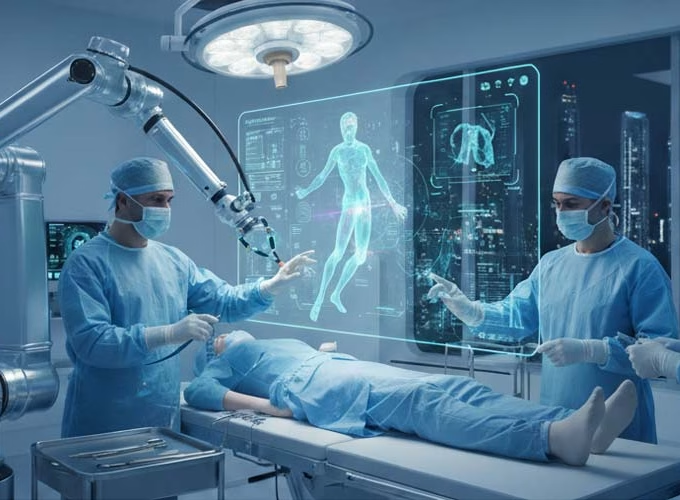Medical malpractice can have far-reaching effects on patients, with long-term injuries posing significant challenges to their quality of life, financial stability, and overall well-being. While the immediate aftermath of a medical error can be daunting, understanding and preparing for the long-term consequences is crucial for affected individuals. These consequences may include chronic pain, ongoing medical treatment, lost wages, and emotional distress, highlighting the importance of addressing medical malpractice from both a medical and legal perspective.
For those dealing with the complexities of long-term injuries caused by medical negligence, seeking advice from a medical error lawyer in Seattle can provide invaluable guidance. Legal professionals specializing in medical malpractice can help victims understand their rights, the potential for compensation, and the steps necessary to secure their future in the face of enduring injury.
Chronic Pain and Disability: A Lifelong Battle
Victims of medical malpractice often endure a future marked by chronic pain or life-altering disabilities. These conditions transform what might have been temporary setbacks into lifelong challenges, requiring ongoing medical care and profound personal adjustments. Victims may find themselves navigating a complex maze of specialists, pain management treatments, and the emotional toll of limitations they never anticipated.
The path to adapting to these conditions often involves a blend of physical therapy, pain management, and psychological support as victims work to maximize their quality of life despite these challenges. The process is seldom easy, requiring determination and a willingness to explore different treatment options to find what provides even the smallest measure of relief.
The Hidden Wounds: Psychological and Emotional Trauma
The psychological toll of medical malpractice can be as devastating as the physical injuries. Victims may experience anxiety, depression, post-traumatic stress, and a deep-seated mistrust of the healthcare system. Fear of doctors and hospitals, once places of healing, can become a source of intense anxiety. This emotional trauma lingers, complicating recovery and affecting relationships, careers, and self-image.
Addressing these mental health challenges is a crucial, and often overlooked, aspect of the healing journey. Therapy can offer a safe space to process emotions, develop coping mechanisms, and rebuild trust. While the scars of medical malpractice may never fully fade, the right support can play a vital role in helping victims learn to live with the aftermath and move towards a place of healing.
Handling the Economic Repercussions of Medical Malpractice
The long-term financial consequences of medical malpractice are significant. Victims face immediate medical expenses and the costs of ongoing care, lost wages, and potentially diminished earning capacity in the future. Medical bills can accumulate rapidly, and the inability to work can create an overwhelming financial burden. The financial strain adds significant stress at an already difficult time, compounding victims’ challenges.
Understanding these financial challenges, planning carefully, and often pursuing legal action to seek compensation is vital for securing the resources victims need. A successful medical malpractice claim can help cover the costs of medical care, make up for lost income, and provide some compensation for the hardships endured.
Seeking Justice and Compensation Through the Legal System
Pursuing a medical malpractice claim requires meticulous investigation, expert medical testimony, and skilled negotiation. Victims must navigate a challenging legal system, often while still coping with the aftermath of their injuries. Finding an attorney specializing in medical malpractice who understands both medicine and the law is crucial for building a strong case. Consulting with experienced Atlanta medical malpractice attorneys, or from a nearby location, can improve the chances of a successful outcome. These professionals understand the challenges of medical negligence cases and can provide the necessary support throughout the process. They can also ensure the victim receives the compensation they deserve, which allows them to focus on recovery.
A successful claim can provide financial support for continued medical care, compensate for lost income, and offer some acknowledgment of the pain and suffering caused by the negligence. While no amount of money can undo the harm, it can ease the financial burden and offer a sense of closure and justice.
The Role of Rehabilitation in Recovery
Rehabilitation plays a crucial role in the recovery process for victims of medical malpractice, serving as a bridge to regaining independence and enhancing quality of life. Here’s a closer look at how rehabilitation aids in this transformative journey:
- Physical Therapy: Aims to restore physical function and mobility, helping victims to regain strength and reduce pain.
- Occupational Therapy: Focuses on improving daily living skills, enabling individuals to adapt to their injuries and maintain independence.
- Counselling: Offers emotional and psychological support, addressing the mental health challenges often accompanying long-term recovery.
- Pain Management: Teaches strategies to manage chronic pain, a common consequence of medical malpractice injuries.
- Adaptive Strategies: Rehabilitation specialists work closely with victims to develop customized approaches to overcome specific challenges.
- Hope and Motivation: Though potentially slow and challenging, the rehabilitation process offers hope. Each small victory, whether a regained skill or pain relief, is a significant step forward in rebuilding a victim’s life.
Advocating for Change: Preventing Future Medical Errors
Victims of medical malpractice and their families often become powerful advocates for change within the healthcare system. By raising awareness, supporting patient safety initiatives, and even pushing for legislative reform, they work to prevent others from suffering similar experiences. Sharing their stories can put a human face on the statistics of medical errors, driving home the real-life consequences of healthcare mistakes.
This advocacy gives meaning to their struggles and plays a crucial role in driving improvements in medical practices and patient safety for the future. Their efforts help to create a healthcare system where patients feel safer, doctors are held accountable, and the risk of medical malpractice is reduced for everyone.
The Impact of Legal Advocacy on Recovery
Legal advocacy plays a crucial role in helping victims of medical malpractice begin to heal. A knowledgeable legal advocate takes on the complexities of the legal system, allowing victims to focus on their physical and emotional recovery. These professionals fight for compensation, provide support, and offer a sense of security during a difficult time. The legal process itself can help victims feel that their experience is acknowledged, the wrongs they’ve suffered are being addressed, and they are taking action to seek justice.
Furthermore, successful legal action can make a difference beyond the individual case. It can highlight areas where medical practices need to change, leading to safer care for future patients. This dual impact – supporting the victim while also pushing for improvements in the healthcare system – makes legal advocacy a powerful tool after instances of medical malpractice.
















